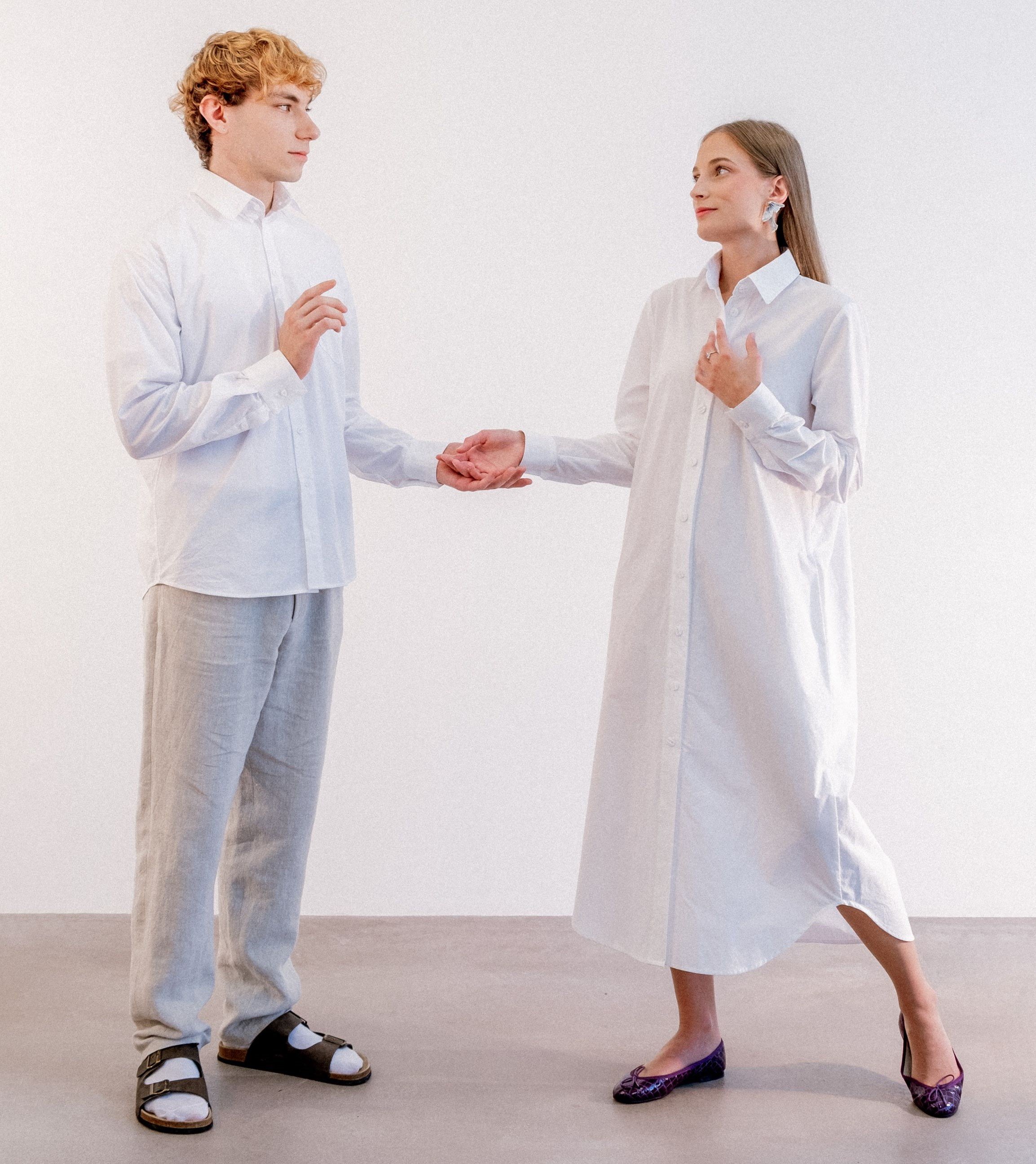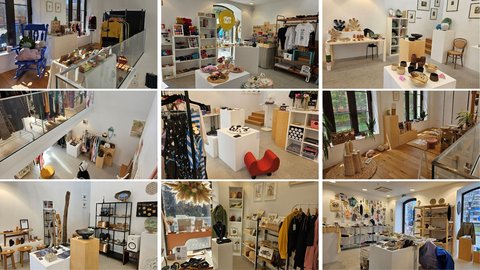Advanced Course on Sewing Shirts or Shirt Dresses / Module 4
13. 2. 2025

The shirt or shirt dress sewing course is the 4th module of the year-long in-house sewing course, which consists of two parts – the beginner's course (modules 1 to 3) and the advanced course (modules 4 to 6).
In the 4th module of the sewing course, we will focus on sewing a shirt or shirt dress. This course requires an understanding of patterns and solid mastery of the sewing machine. It is also the only module where, instead of using an overlocker to finish raw edges, we will use French seams, which require more precise sewing with less room for mistakes. We will also tackle more challenging sewing tasks, such as attaching a collar with a collar stand, sewing a cuff slit, and finishing the rounded hem at the shirt's length.
4th Module Dates:
- Wednesday, February 5, from 4:00 PM to 8:00 PM
- Thursday, February 6, from 4:00 PM to 8:00 PM
- Friday, February 7, from 4:00 PM to 8:00 PM
- Wednesday, February 12, from 4:00 PM to 8:00 PM
- Thursday, February 13, from 4:00 PM to 8:00 PM
Prerequisite:
YES, prior knowledge is required. This course is suitable for those who have already participated in the beginner modules (1 to 3) of the year-long sewing course or have gained the necessary knowledge elsewhere. The program is intended for individuals aged 14 and older and is not suitable for beginners.
- Guidelines for purchasing materials:
The fabric for the shirt is included in the course fee, which is white cotton shirting fabric. If you wish to use a different fabric, please purchase it yourself. If buying fabric, please follow these guidelines:
- The fabric should be 100% cotton shirting fabric (poplin).
- The fabric should be WITHOUT elastane.
- How much fabric to buy: twice the length of the shirt + 50 cm.
- Pre-wash the fabric to avoid future shrinkage.
After completing the 4th module, you are invited to continue with the other modules in the year-long sewing course. See the 5th module.
*You can attend the advanced course modules (4, 5, and 6) if you have the appropriate prior knowledge (e.g., you have already completed beginner modules 1-3 or training in the textile lab or gained knowledge elsewhere). The advanced modules are NOT suitable for beginners!
*Participants who purchase at least five out of the six modules (from both the beginner and advanced courses) will receive a free year-long membership package at Center Rog, worth €390, upon presentation of the purchase certificate.
*Participants who purchase at least three modules out of the six in either the beginner or advanced course will receive a free one-month membership package at Center Rog, worth €60, upon presentation of the purchase certificate.
About the mentors:
The course will be led by mentors from the textile lab.
Karmen Gombač – fashion designer, master pattern maker, seamstress, and expert in various textile techniques and technologies.
Zala Hrastar – fashion designer and master pattern maker, seamstress, upcycling expert, and quilter.
Uroš Topić – head of the textile lab, textile and fashion designer, tailor, and expert in historical clothing.
***
Participants should gather 15 minutes before the scheduled start time in the entrance hall of Center Rog. Please store your personal belongings in the lockers, which the mentor will show you. Please be on time, as late arrivals disrupt the workflow. In the case of a delay, entry to the lab cannot be guaranteed.
The program will be conducted in Slovenian unless otherwise stated. In case of cancellation, you will be notified two days before the scheduled start.
If you are unable to attend the program, the registration fee is non-refundable, and it is not possible to change the date. You can transfer your participation to another person, but please notify us at least 24 hours before the program begins at the email address: tekstil@center-rog.si
We look forward to your company and creative collaboration.
See more
Mandrak

Mateja in Tomaža je povezalo veselje do izdelovanja klasičnih kitar. Začela sta vsak zase, zdaj pa združujeta moči in znanje, da bi skupaj zasnovala in izdelala inštrument z inovativnim sistemom vpenjanja strun in s tem povsem drugačnim ...




